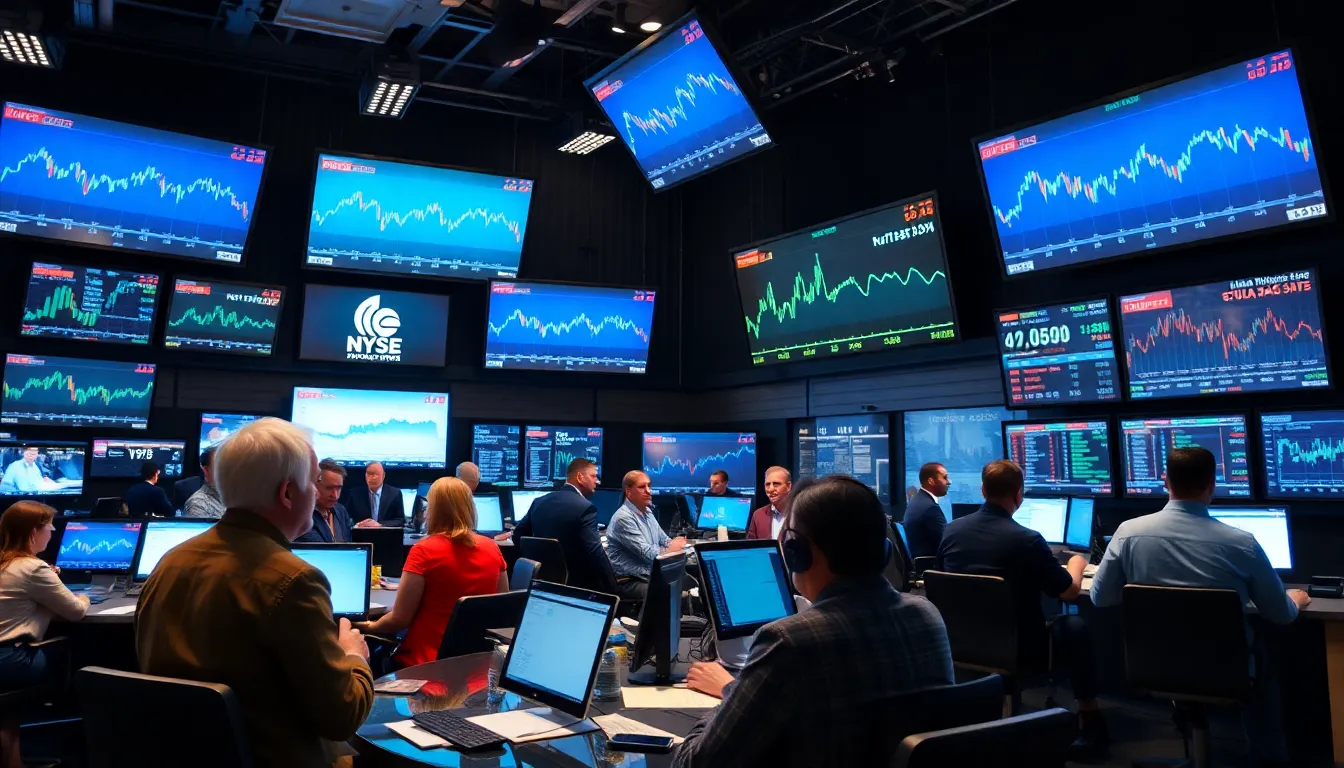In today’s fast-paced world, economic news shapes the decisions individuals and businesses make every day. From fluctuating stock prices to changing interest rates, understanding these developments is crucial for navigating the financial landscape. With the global economy constantly evolving, staying informed about key trends and events can provide a competitive edge.
As markets react to political changes, technological advancements, and global crises, the impact on everyday life becomes undeniable. Economic news not only influences investment strategies but also affects job markets and consumer behavior. By keeping a pulse on these shifts, readers can better prepare for the opportunities and challenges that lie ahead.
Table of Contents
ToggleImportance Of Economic News
Economic news plays a critical role in decision-making for individuals and businesses. Tracking economic indicators, such as GDP growth rates, unemployment figures, and inflation data, enables stakeholders to gauge economic health.
Understanding stock market performance helps investors adjust their portfolios and strategies. Knowing interest rate changes informs borrowing costs, affecting purchasing power and spending behaviors.
Awareness of international economic events guides companies in global market expansions and partnership opportunities. Monitoring currency fluctuations influences pricing strategies for exporters and importers, ensuring competitive positioning.
Staying updated on policy changes, such as tax reform or trade agreements, impacts organizational strategies. Recognizing shifts in consumer sentiment aids businesses in identifying market trends and potential gaps.
Economic news equips readers with insights to anticipate market movements, making informed choices possible. By tracking these developments, individuals and organizations navigate the financial landscape effectively.
Major Sources Of Economic News

Numerous sources provide valuable insights into economic news. These include traditional media outlets and digital news platforms, each serving distinct audiences and preferences.
Traditional Media Outlets
Traditional media outlets like newspapers, television, and radio remain significant sources of economic news. Major newspapers such as The Wall Street Journal and The Financial Times offer in-depth analysis, market reports, and expert opinions. Television networks like CNBC and Bloomberg provide real-time financial updates and expert commentary, often featuring interviews with economists and business leaders. Radio programs focused on business news also deliver timely updates, making these outlets reliable for staying informed on economic developments.
Digital News Platforms
Digital news platforms have transformed the landscape of economic reporting. Online publications such as Reuters and Business Insider deliver up-to-the-minute news through articles and videos. Social media platforms like Twitter and LinkedIn provide real-time updates and allow for instant engagement with thought leaders and analysts. Economic data aggregators, including Trading Economics and Statista, present statistical insights, making it easier to track global economic indicators. Podcasts focused on finance also offer listeners expert discussions and analyses on economic trends, ensuring access to diverse viewpoints on current events.
Key Topics In Economic News
Key topics in economic news encompass various indicators that provide insight into market health and trends. Tracking these elements enables individuals and businesses to make informed decisions.
Market Trends
Market trends reflect the overall direction and performance of financial markets. Analysts examine stock indices such as the S&P 500 and Dow Jones Industrial Average for insights. Rising equities often signal investor confidence, while declining values may indicate economic concerns. Geographic trends also emerge, showing regional differences in growth rates and investment strategies. Sentiment analysis, capturing investor behavior through surveys and reports, further unveils market dynamics.
Inflation Reports
Inflation reports play a critical role in understanding purchasing power and cost of living. The Consumer Price Index (CPI) and Producer Price Index (PPI) are primary measures of inflation levels. Increasing CPI values indicate rising consumer prices, affecting household budgets and spending capacity. Central banks may adjust interest rates in response to inflation changes to stabilize the economy. Real inflation data informs businesses about pricing strategies and consumer demand.
Employment Statistics
Employment statistics provide crucial insights into labor market conditions. Key metrics include the unemployment rate, job creation figures, and labor force participation rates. A lower unemployment rate typically signals a robust economy and increased consumer spending potential. Job growth in sectors like technology and healthcare indicates evolving workforce demand. Regular updates from the Bureau of Labor Statistics (BLS) offer dependable data for analyzing employment trends and predicting economic shifts.
The Impact Of Economic News On Markets
Economic news significantly affects market conditions, influencing both investor behavior and overall market movements. Understanding these impacts helps stakeholders make informed decisions.
Investor Sentiment
Investor sentiment reflects the overall attitude of investors toward market conditions, driven largely by economic news. Positive economic reports, such as strong job growth or rising GDP, often boost optimism, leading to increased buying activity. Conversely, negative news, like rising inflation or higher unemployment rates, can create fear and result in selling pressure. Surveys like the American Association of Individual Investors (AAII) Sentiment Survey provide insights into this sentiment, revealing how optimism or pessimism about the economy influences investment flows and stock prices.
Market Volatility
Market volatility measures the fluctuations in asset prices over time, often spurred by economic news releases. Important announcements, such as Federal Reserve interest rate decisions or major GDP growth figures, can cause rapid price changes. High volatility, characterized by large price swings, typically occurs around significant economic events. For instance, the stock market may react sharply to unexpected employment data or inflation reports, indicating uncertainty or rapid shifts in investor expectations. Tracking volatility indices, like the Cboe Volatility Index (VIX), offers insights into market risk and investor apprehension, helping traders navigate potential fluctuations that economic news may trigger.
Staying updated on economic news is vital for anyone looking to make informed financial decisions. The fast-paced nature of the economy means that even small changes can have significant impacts. By keeping an eye on key indicators and trends, individuals and businesses can better navigate the complexities of the financial landscape.
Access to reliable sources of economic news enhances understanding and aids in strategic planning. Whether through traditional media or digital platforms, the insights gained from economic reports can shape investment strategies and influence consumer behavior. Ultimately, being informed empowers stakeholders to anticipate market movements and respond effectively to changes in the economy.







